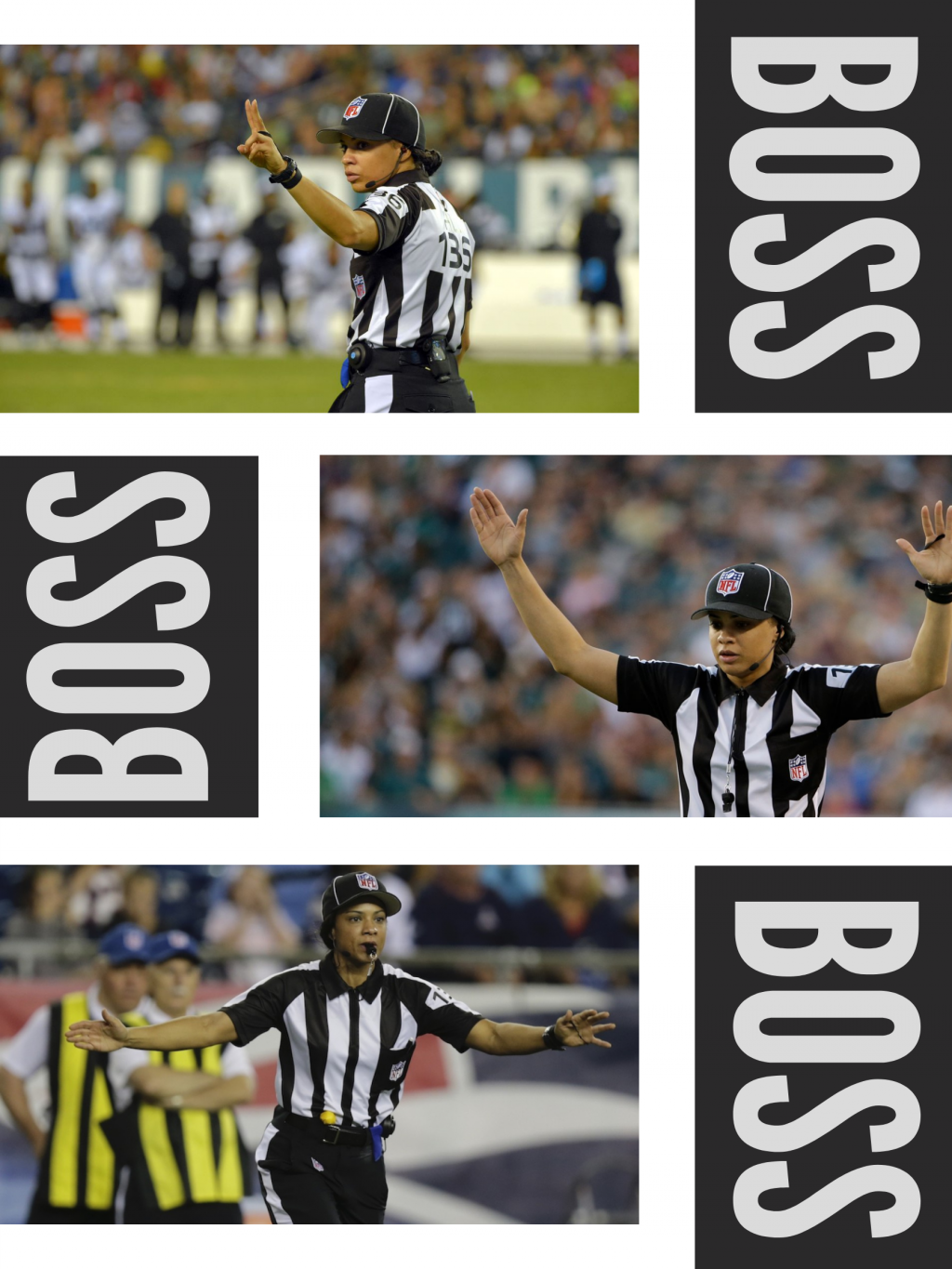On February 7, 2021, Tom Brady earned his seventh Super Bowl win. However, Brady was not the only one making headlines. The game’s official seemed to be attracting extra attention, and not just from angry Chiefs fans. A country filled with civil unrest looked to the official as a beacon of hope. What was the ref doing that called for so much attention? Well, the question was not exactly what as much as it was who. At five feet and six inches, 38-year-old Maia Chaka made history by stepping onto the NFL Super Bowl LV field as the first woman and Black woman to referee a Super Bowl game.
Chaka grew up in Virginia where she later attended Norfolk State University as an education major. As a young girl, there were no feasible options for her to play football which is unfortunately non-unique as the Women’s Sports Foundation reports that “girls have 1.3 million fewer opportunities to play high school sports than boys have.” Due to lack of access, Maia’s passion seemed to wane, but to her surprise, she would rediscover her love of sports in a different way later on in life. Rather than being on the field as a player, she looked for the next best thing. Chaka spent her college years officiating college sports games which prepared her for her unforeseen role in the NFL. Post-college she worked as a physical and health education teacher for special needs students at the Renaissance Academy in Virginia Beach.
But is Maia Chaka’s new place in the NFL even just cause for hope? We have seen these signs of possible steps forward in the women’s movement in the NFL, most noteworthy in 2015 when Sarah Thomas became the first female NFL official. As we now know, what seemed like the first step in a fast revolution actually lacked consequence and men continue to dominate the field.
Alongside the lack of inclusivity towards women, the NFL’s treatment of the Black community is now back in the spotlight. The move to put a Black woman right in the public eye seems very off-brand for the NFL, which has historically made clear that it does not care about the BLM and justice movement. The crucifixion of Colin Kapernick can be cited as evidence of disregard for its Black players. However, the NFL hasn’t been very on-brand for quite some time now. In early September of 2020, the NFL painted “It Takes Us All” and “End Racism” on its fields end zones just after committing $20 million over a 10-year period to combat systemic racism. This suggests an overall shift in the NFL in regard to race relations, at least from a public relations perspective.
Overall, Maia Chaka’s accomplishment is not one to be taken lightly. Unfortunately, her experience as a woman in the NFL cannot provide us with any real conclusion about whether or not the NFL will be taking the appropriate steps to bridge the gap in women’s involvement in sports. However, we can deduce that Chaka’s role can only confirm what has been suspected. The NFL is finally taking a proactive stance against racism which has been long denied.
Nicola Naidoo
Staff Writer
Graphic: Tess Cundiff – Photos from AP Photo and Baltimore Sun

